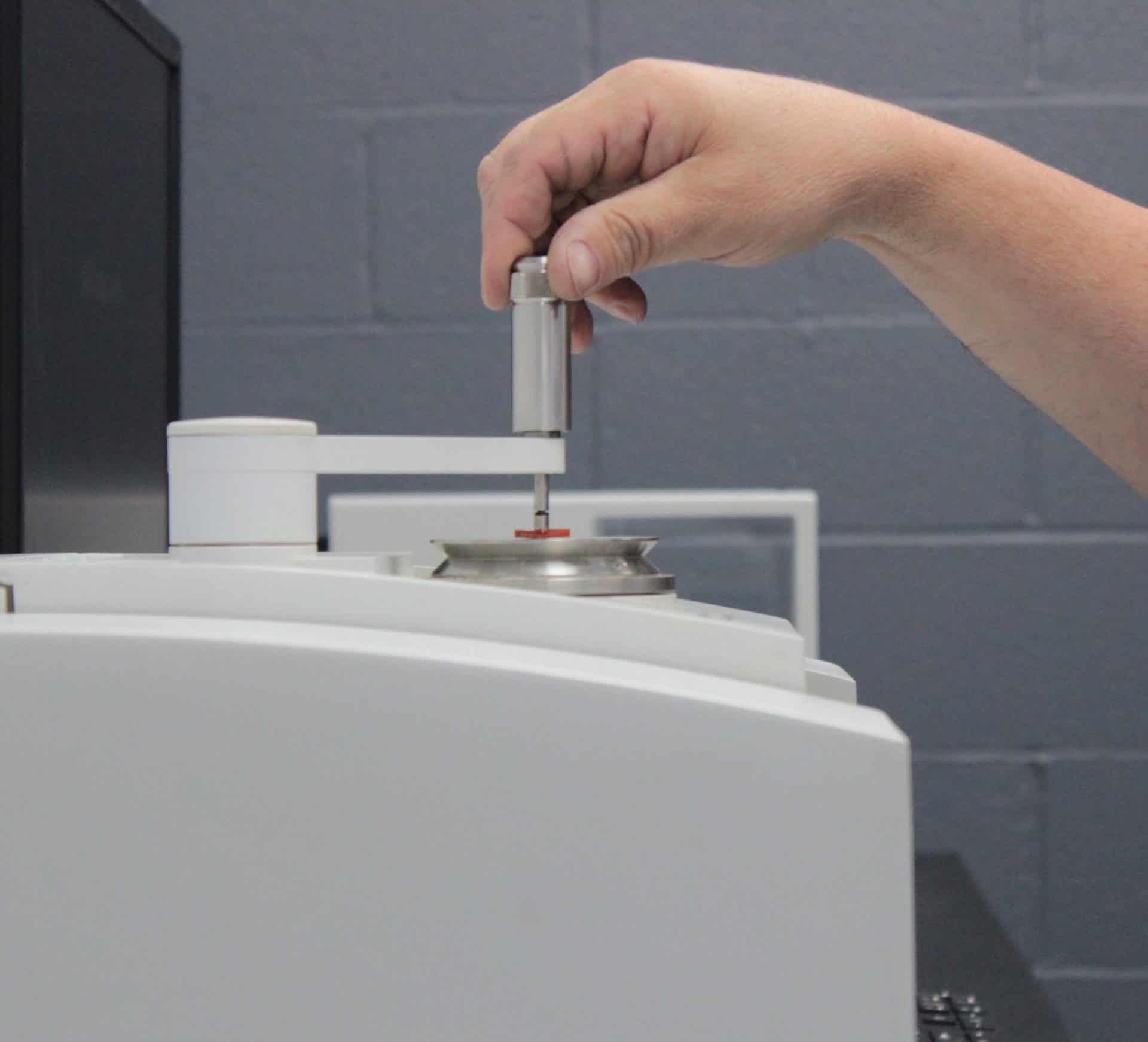
Fourier Transform Infrared (FTIR) analysis is commonly used to determine the polymer type present in a compound.
FTIR helps us understand the base polymer (of polymer foundation) of a compound. This is an important step in the process of evaluating options for end-use applications. It can also assist in competitive benchmarking for any particular compound.
FTIR analysis is especially helpful for quality control of rubber materials. Key material properties, like elasticity, can change during the vulcanization process. With accurate polymer type identification, ACE can compare performance criteria before specifying the material for use.
But that’s not the only use for FTIR—polymer type identification is an important test method across many fields and industries, including environmental testing, food testing and forensics. Based on the desired outcome of testing, ACE can recommend a testing technique appropriate for the material and end user.
What is FTIR Used For?
FTIR spectroscopy often serves as the first step in the material analysis process. Used to determine the polymer type present in a rubber or silicone compound, FTIR is an established technique for quality control of industrially manufactured materials.
FTIR analysis can be used to:
- Characterize unknown materials (including films, solids, powders and liquids)
- Identify contaminants (including particles, fibers, powders or liquids)
- Identify additives following an extraction from a polymer matrix
- Supplement failure analysis investigations to identify oxidation, decomposition or uncured monomers
How does FTIR spectroscopy identify these materials? It uses radiation to essentially pull a “fingerprint” from each sample. Every molecule or chemical structure has its own fingerprint, which makes FTIR a useful tool for chemical identification.
Typically, FTIR analysis is used as a qualitative tool for material identification. For example, an FTIR spectrometer may be used to characterize the amount of water present in an oil sample. It can also be used to observe the degree of oxidation and nitration of an oil.
However, FTIR is also occasionally used as a quantitative tool to identify specific functional groups that exist within a material, as long as the chemistry is understood and standard reference materials are available.
It is important to note that as a “bulk” analytical technique, FTIR cannot gain information about trace concentrations of material in a sample. To determine if FTIR is the right test method for your material, reach out to the experts at ACE.
The Results
FTIR is a research instrument with a high degree of flexibility. Test results can include a wide range of information, including…
- Identification of an unknown
- Quantitative information, including additives or contaminants
- Kinetic information
- Complex information (when used in conjunction with other testing devices like TGA, GC or Rheometry)
Interpreting data from FTIR test results can be complex, and is not always straightforward. That is why it is so important to work with an experienced and trustworthy material testing laboratory like ACE when depending on accurate test results and analysis for your material identification.
Why Is It Important?
There are many fourier transform infrared spectroscopy applications, including polymer science, petrochemical engineering, biological research, food analysis and environmental analysis. Across a wide variety of fields, FTIR is an important form of testing because it allows researchers to check for harmful materials, assess the quality of their sample, and address health and safety concerns.
For example, FTIR can be used for soil analysis and to monitor water quality. This helps protect the environment and promote human safety. The food industry uses FTIR to monitor their products and ensure adherence to government requirements.
ACE Laboratories
Here at ACE, we believe in building strong relationships with a long-term view of success. With the fastest turnaround times in the industry and an experienced laboratory staff, we provide excellent quality service to our partners.
Interested in FTIR spectroscopy for your material? The experts at ACE Laboratories are here to provide insightful analysis from FTIR test results. Contact ACE today and tell us how we can help!
